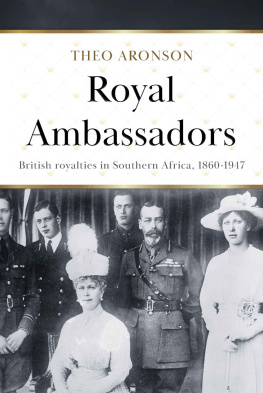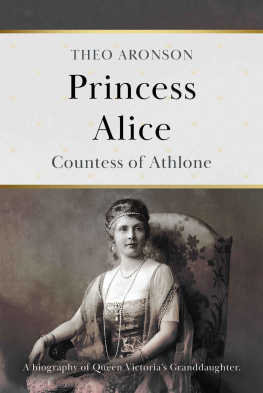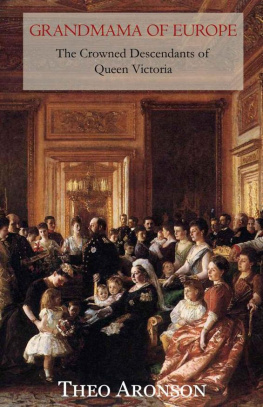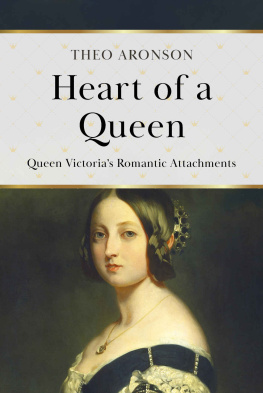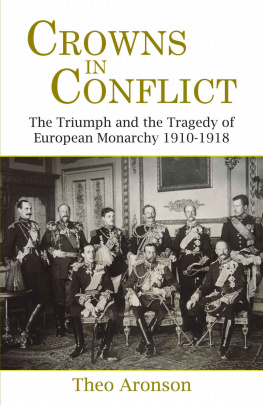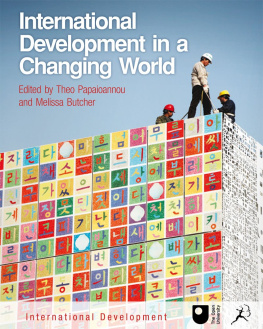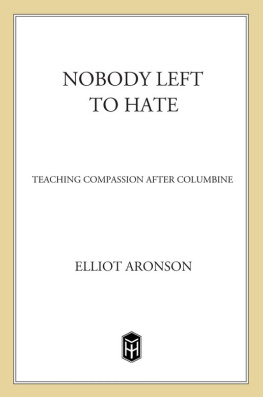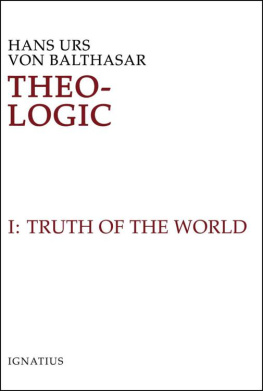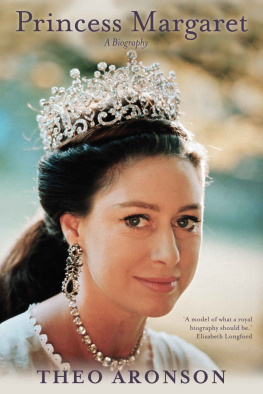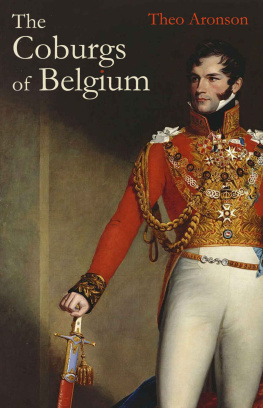Theo Aronson - Royal Ambassadors: British Royalties in Southern Africa 1860 - 1947 (Theo Aronson Royal History)
Here you can read online Theo Aronson - Royal Ambassadors: British Royalties in Southern Africa 1860 - 1947 (Theo Aronson Royal History) full text of the book (entire story) in english for free. Download pdf and epub, get meaning, cover and reviews about this ebook. year: 2021, publisher: Lume Books, genre: Non-fiction. Description of the work, (preface) as well as reviews are available. Best literature library LitArk.com created for fans of good reading and offers a wide selection of genres:
Romance novel
Science fiction
Adventure
Detective
Science
History
Home and family
Prose
Art
Politics
Computer
Non-fiction
Religion
Business
Children
Humor
Choose a favorite category and find really read worthwhile books. Enjoy immersion in the world of imagination, feel the emotions of the characters or learn something new for yourself, make an fascinating discovery.
- Book:Royal Ambassadors: British Royalties in Southern Africa 1860 - 1947 (Theo Aronson Royal History)
- Author:
- Publisher:Lume Books
- Genre:
- Year:2021
- Rating:4 / 5
- Favourites:Add to favourites
- Your mark:
- 80
- 1
- 2
- 3
- 4
- 5
Royal Ambassadors: British Royalties in Southern Africa 1860 - 1947 (Theo Aronson Royal History): summary, description and annotation
We offer to read an annotation, description, summary or preface (depends on what the author of the book "Royal Ambassadors: British Royalties in Southern Africa 1860 - 1947 (Theo Aronson Royal History)" wrote himself). If you haven't found the necessary information about the book — write in the comments, we will try to find it.
Royal Ambassadors: British Royalties in Southern Africa 1860 - 1947 (Theo Aronson Royal History) — read online for free the complete book (whole text) full work
Below is the text of the book, divided by pages. System saving the place of the last page read, allows you to conveniently read the book "Royal Ambassadors: British Royalties in Southern Africa 1860 - 1947 (Theo Aronson Royal History)" online for free, without having to search again every time where you left off. Put a bookmark, and you can go to the page where you finished reading at any time.
Font size:
Interval:
Bookmark:
ROYAL
AMBASSADORS
BRITISH ROYALTIES IN SOUTHERN AFRICA 18601947
Theo Aronson
First published by David Philip in 1975
Copyright The Estate of Theo Aronson 1975
This edition published in 2020 by Lume Books
30 Great Guildford Street,
Borough, SE1 0HS
The right of Theo Aronson to be identified as the author of this work has been asserted by them in accordance with the Copyright, Design and Patents Act, 1988.
All rights reserved. No part of this publication may be reproduced, stored in a retrieval system, or transmitted in photocopying, recording or otherwise, without the prior permission of the copyright owner.
FOR BROCAS HARRIS
Table of Contents
Preface
The title of this book indicates its approach. In dealing with the various British royalties who toured South Africa, I have tried to present them as something more than mere visitors: they are seen, rather, as ambassadors for the monarchy. To a certain extent, I have used these royal visits to explore the relationship between South Africa and the British Crown.
For this reason I have not included all royal visitors to South Africa. In the main, I have confined myself to official, as opposed to private, visits, and of these I have dealt only with the more important or more interesting ones. I have not, for instance, included the tour of Prince George, Duke of Kent, in 1934, for the reason that it was not particularly significant and that it would have meant covering very much the same ground as in the far more politically important tour undertaken by his brother, the Prince of Wales, a decade before.
Nor is this book concerned with the spells of duty of those royal governors-general, Prince and Princess Arthur of Connaught, and the Earl and Countess of Athlone. I have confined myself to visitors only.
And, finally, this is not a detailed, day-by-day account of the various royal tours. Rather it is a series of biographical studies of the visitors themselves and an attempt to evaluate the mood and the political significance of these occasions.
I have received a great deal of help during the writing of this book, but my chief debt is to Mr Brian Roberts, whose interest, encouragement and extensive knowledge of South African history have proved invaluable. For further information, advice and assistance I must thank H.R.H. Princess Alice, Countess of Athlone; Mr Robert Mackworth Young of the Royal Library, Windsor Castle; Mr M. H. Buys of the Government Archives, Pretoria; Mrs Katherine Drake, Mrs B. Gosling and the staff of the South African Library, Cape Town; the staff of the Library of Parliament, Cape Town; Mr J. Smalberger of the Cape Archives; Mrs D. Strutt of the Local History Museum and Mr Dennis McCarthy of the Killie Campbell Africana Library, Durban; Mr A. Porter of the Port Elizabeth Library; Mrs F. van Niekerk and Mrs M. Macey of the Kimberley Library; Mrs Dorothy Caine of the Kommetjie Library; Mrs Miriam Bloomberg; Mrs Nora Hannah; Miss Marjorie Juta; Miss Norah Henshilwood; Mr Brocas Harris; Mr Andr Bothner; and Maurice and Judy Hoare, in whose home in Kimberley much of this manuscript was written.
For the use of short extracts I am deeply indebted to the authors and/or publishers of the following books: Selected Correspondence 18841902 by Sir James Rose Innes (Van Riebeeck Society, Cape Town, 1972); Boundless Privilege by Marjorie Juta (Human & Rousseau, Cape Town, 1974); The Royal Family in Africa by Dermot Morrah (Hutchinson, London, 1947); Queen Mary by James Pope-Hennessy (George Allen & Unwin, London, 1959); The Shadows Lengthen by Piet van der Byl (Howard Timmins, Cape Town, 1973); H.R.H. by F. E. Verney (Hodder & Stoughton, London, n.d.); A Kings Story by the Duke of Windsor (Cassell, London, 1951).
I must thank Her Majesty Queen Elizabeth II, by whose gracious permission the photograph of Prince Albert Victor and Prince George is here reproduced. Grateful acknowledgement is made to Burkes Peerage Limited for the illustration of the Royal Arms on the jacket.
For the use of pictures I am grateful also to Dr A. M. Lewin Robinson of the South African Library; Mrs D. Strutt of the Local History Museum and Mr Dennis McCarthy of the Killie Campbell Africana Library, Durban; the Cape Archives; the Government Archives; Mr H. W. Dickens of Kimberley; Mr Esdon Frost of Cape Town; the Cape Times ; The Argus , Cape Town; and Mr Charles Barry and The Star , Johannesburg, who were particularly helpful.
Prince Alfred
It was a pity that he was so small. Even at fifteen, the year of his confirmation, Prince Alfred looked more like a boy of twelve or thirteen. He was, complained his mother Queen Victoria, very short for his age, although she imagined that he was less so than his elder brother Bertie had been at fifteen.
In other ways, though, Prince Alfred or Affie seemed to be something of an improvement on Bertie. Whereas the Prince of Wales was indolent, stubborn and slow to learn, Prince Alfred, who was three years younger, was active, alert and engagingly mannered. Indeed, it had been partly to get Affie away from Berties detrimental influence that the Queen and, more particularly, Prince Albert had earlier decided to separate the two boys. At the age of eleven, Prince Alfred had been packed off to live at Royal Lodge, Windsor, with a governor of his own. It was hoped that, under the benign but watchful eye of Major John Cowell, Affie would develop into a model prince: the sort of intelligent, enlightened and diligent son for which Prince Albert so ardently longed. Queen Victoria might lament the fact that sons were no longer ones own after the age of ten but she would never have dreamed of opposing her husbands highminded if somewhat cold-hearted scheme. With Bertie proving such a disappointment, they must do what they could to get the best out of Affie.
And they seemed to be getting it. Of the lethargy and backwardness of his elder brother, Prince Alfred was showing no trace. Major Cowell reported the boy to be quick-witted and eager to learn. As it had long ago been decided that Affie should go into the navy, he joined H.M.S. Euryalus as a midshipman in 1858. He was then fourteen. Queen Victoria, visiting him soon after he had reported aboard, was delighted to see him in his middies jacket, cap, and dirk, half-blushing and looking very happy. Her son might be disappointingly small but he was undeniably handsome almost pretty and full of spirit. Prince Albert, less effusive but no less proud, had in the meantime sent off the boys excellent naval entrance-examination papers for the perusal of Lord Derby, the current Prime Minister.
The exacting father was no less pleased with his sons moral progress. Alfred, reported the Prince Consort to his eldest daughter Vicky, fully recognises his personal responsibility for his own conduct and his own happiness. At the time of Prince Alfreds confirmation, in April 1860, the Prince Consort treated the fifteen-year-old boy to one of his wordier and more erudite lectures on the struggle between the animal nature and the moral law. The more matter-of-fact Queen contented herself by saying that she hoped her son should have as few failings as mortal man can have.
It was a vain hope. As always, when it came to their dealings with their sons, the royal couple had set their sights too high. Affie might be brighter than Bertie but he was no paragon, neither of intellect nor of virtue. He was simply a lively, likable lad who would come, in time, to share most of his elder brothers regrettable but human weaknesses. Once at sea, Affie flung himself with gusto into the duties and the diversions of his fellow midshipmen. He was, as one observer put it, full of fun and life. Major Cowell, who accompanied him to sea, could not watch him all the time. Even princes, it seems, were ready to sample traditional naval practices. For reasons which I cannot chronicle, but which referred to midshipman days, wrote one scurrilous diarist in later years, the rakish Lord Charles Beresford always addressed Prince Alfred as darling Mathilda. When Prince Alfred laughingly threatened to kick Lord Charles for this impertinent reminder of his boyhood indiscretions, the answer would be, You dare, and Ill show you up in the papers!
Next pageFont size:
Interval:
Bookmark:
Similar books «Royal Ambassadors: British Royalties in Southern Africa 1860 - 1947 (Theo Aronson Royal History)»
Look at similar books to Royal Ambassadors: British Royalties in Southern Africa 1860 - 1947 (Theo Aronson Royal History). We have selected literature similar in name and meaning in the hope of providing readers with more options to find new, interesting, not yet read works.
Discussion, reviews of the book Royal Ambassadors: British Royalties in Southern Africa 1860 - 1947 (Theo Aronson Royal History) and just readers' own opinions. Leave your comments, write what you think about the work, its meaning or the main characters. Specify what exactly you liked and what you didn't like, and why you think so.

